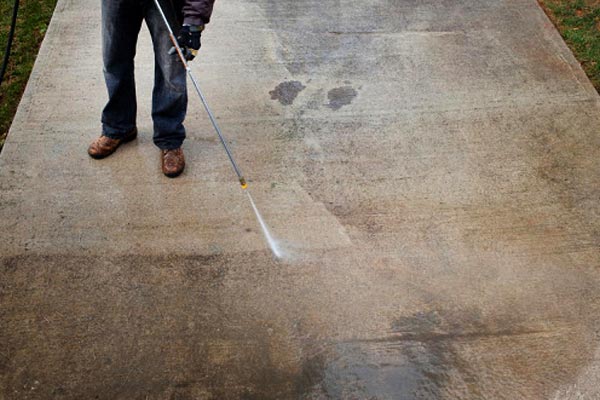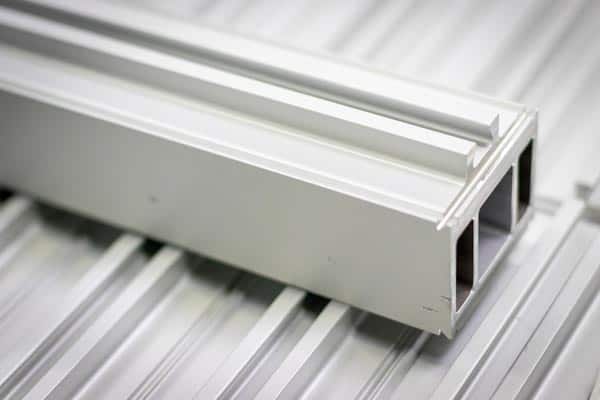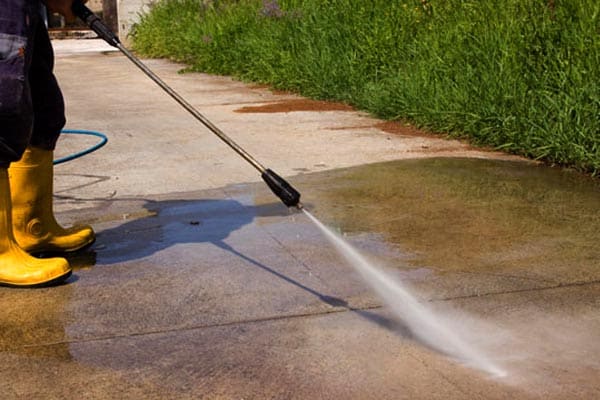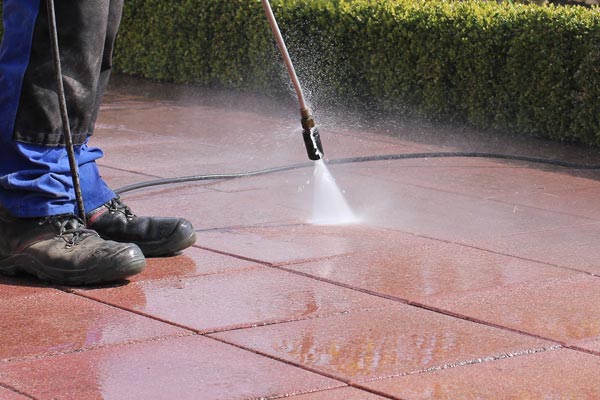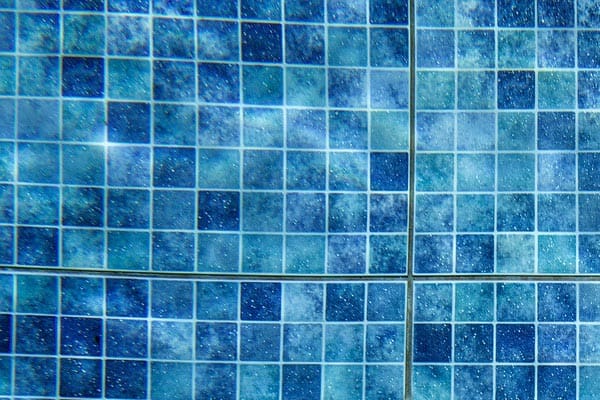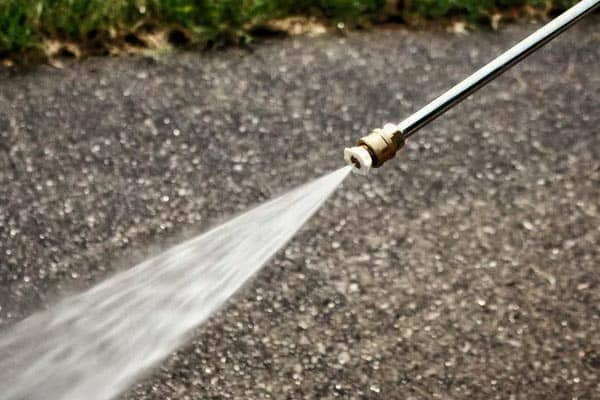Do Pressure Washers Use a Lot of Water Compared to a Garden Hose?
Your pressure washer is a powerful tool that makes it easy to clean grime and dirt off surfaces, and you can use them for a huge range of projects like cleaning dirt from your home exterior, car, decking, sidewalk, garage, and driveway.
The powerful water blast gives you great cleaning power, but does it use a lot of water? No one wants to be unpleasantly surprised by a large water bill, so you have to know how much water it uses when you clean.
When you compare how much water a pressure washer uses against a hose, you find out that a pressure washer doesn’t use that much water at all.
Do pressure washers use a lot of water?
A pressure washer uses an average of 1.24 gallons per minute, but a hose uses an average of 8.55 gallons per minute. This shows how efficient a pressure washer is, and we’ll break it down below to give you a better understanding.
Unfortunately for some people, this means doing math and basic calculations. But, I’ll walk you through this while comparing a few different pressure washers.
How You Choose to Use Your Pressure Washer Impacts Water Consumption
No matter which styles your pressure washer is in, the washing method involves using an incredible amount of pressure, heat, water flow force, and heat. Each component will change how your pressure washer cleans your chosen surface.
For example, using purely cold water means that you have to use more cleaning solutions, and you may have to use more water to increase your water flow force to get the same results you’d get by using lower flow force and hotter water.
So, how you choose to use your pressure washer can impact how much water you use. It’s also common for people to mistakenly think that pressure washers use a huge amount of water due to the jet of water it produces when you clean dirt and grime, but this isn’t necessarily true.
You measure the volume of pressure that your pressure washer emits in gallons per minute. On average, your pressure washer uses 1.24 gallons per minute, but your traditional garden hoses will use 8.55 gallons per minute of water.
So, this means that your pressure washer actually uses up to 80% less water than a hose, and this can result in a lot of savings on your utility bills.
Water Pressure Changes by Task
The amount of pressure your machine has to put out will vary by task. For example, taking on smaller projects like washing a boat or car only requires a light-duty machine that is capable of producing a flow rate of 1.4 to 1.5 gallons per minute with 1,400 to 1,750 pounds per square inch of water pressure.
On the other end of the spectrum, you may need a medium-duty unit to clean your driveway that puts out 2.2 to 2.3 gallons per minute with 2,300 to 2,500 gallons per minute.
This means that the lightweight washer can use up to 68% less water than a standard garden hose.
Calculations for Using Your Pressure Washer
The following calculations will help you get an understanding of how much water your pressure washer can use, especially when you stack it up against a traditional garden hose.
We’ll start with a hose that gives you 8.55 gallons per minute at 10 PSI. If you screw on a gun to control the pressure, you’ll get 5 gallons per minute at 40 PSI, and you take up to 10 minutes to clean off your driveway.
These calculations add up to filling up a 50-gallon trash bin of water in just 10 minutes. The next day, you see that the driveway isn’t as clean as you’d like it to be, so you bring out the pressure washer to give it a go and see what happens.
You take 10 minutes to clean your driveway using a pressure washer that operates at 1.24 GPM at 1,450 PSI.
As a result, the pressure washer would fill up a 12-gallon bucket while the hose would fill up a 50-gallon trash bin for the same 10-minute project. Also, the pressure washer will get your driveway much cleaner than the hose will.
GMP Versus PSI in a Pressure Washer
The GPM is the flow rate on your pressure washer, and it equals the amount of water the machine can produce in 60 seconds. PSI is the amount of pressure that the pressure washer puts out when you use it.
You’ll have to get the cleaning units or CU, and this measures how much cleaning your pressure washer does compare to the water it uses. To get the cleaning units, you’ll have to multiply the GPM by the PSI. So, if your pressure washer has 1,700 PSI and 1.3 GPM, the unit’s cleaning units are 2,210.
When you talk about the cleaning capacity of your machine, time is money. The less time you spend working on a project, the higher the efficiency rating will be.
You also have to consider that not all surfaces are the same, and there are all different types of contaminants.
It’s also important to note that even though two pressure washers can have the same PSI, they can have a lot of different performances.
If you look at the garden hose comparison again, you’ll notice that we highlighted how efficient pressure washers are with a lower GPM. But, when you compare different machines, efficiency is all about the work you get done instead of the water used.
Cleaning units are the PSI multiplied by the GPM, and you can compare this to horsepower in a car. Smaller engines have less horsepower overall while being more fuel-efficient, but they still have lower power output capabilities.
For the final piece of the equation, you have to compare GPM in addition to PSI because they work together to clean things. So, let’s assume that pressure washer one has 2,030 PSI with 1.76 GPM while pressure washer two has a 2,150 PSI with 1.4 GPM.
- Pressure Washer One – 2,030 PSI x 1.76 GPM = 3,572 CU
- Pressure Washer Two – 2,150 PSI x 1.40 GPM = 3,010 CU
As you can see, the pressure washer one is the clear winner when it comes to cleaning units, even though it has a lower PSI rating.
Why Pressure Washers Don’t Use a Lot of Water
Your pressure washer has a nozzle with a very small opening, and this design forces a smaller amount of water out at a higher pressure to intensify the power. So, you’ll get a much more forceful jet of water when you switch it on that can easily dislodge grime, dirt, or algae on your surface.
Also, using a pressure washer charges your water molecules when they spray out of the wand, and this allows each molecule to stick to dirt better to wash it away without having to use cleaning agents. In turn, you get a more eco-friendly cleaning method.
Ways to Maximize Your Water Savings Potential
There are several things you can do to maximize your water savings potential each time you fire up your pressure washer. You can use the following tips:
Water Temperature
You may not realize that you can use your pressure washer with cold or hot water, so how do you have any idea which water temperature you should use?
You can compare your pressure washer to a washing machine to make it easier where colder water is great for simple cleaning projects, but you need hot water to get rid of grime, dirt, and oil.
Using hot or warm water with the powerful jet your pressure washer produces is one way to cut back the time the project takes and cut down on the water, so consider turning on warm or hot water over cold when you’re taking on stubborn cleaning projects.
Water Pressure
Your water pressure is adjustable on your pressure washer, so you should only use as much water as you need.
If you’re careful with the amount of pressure the machine puts out, you won’t damage your concrete driveway or your car’s paint job while cleaning it.
How Much Water Different Pressure Washers Use
- SunJoe SPX3000 – 1.76 gallons per minute
- Simpson Cleaning Megashot 3,200PSI – 2.5 gallons per minute
- Paxcess Pressure Washer 2,150PSI – 1.85 gallons per minute
- Westinghouse WPX3200 – 2.5 gallons per minute
- Mrliance 3500PSI Pressure Washer – 2 gallons per minute
Bottom Line
Now you know that pressure washers don’t actually use a huge amount of water, and you can see how valuable they are for cleaning projects of all sizes.
You can use them for extended periods and know that they’re only using a fraction of the water that a standard garden hose does for the same projects.
